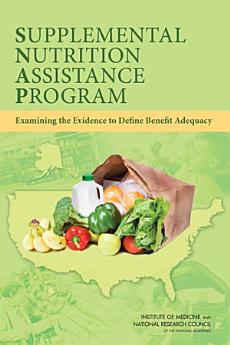Supplemental Nutrition Assistance Program: Examining the Evidence to Define Benefit Adequacy
About this ebook
In response to questions about whether there are different ways to define the adequacy of SNAP allotments consistent with the program goals of improving food security and access to a healthy diet, USDA's Food and Nutrition Service (FNS) asked the Institute of Medicine (IOM) to conduct a study to examine the feasibility of defining the adequacy of SNAP allotments, specifically: the feasibility of establishing an objective, evidence-based, science-driven definition of the adequacy of SNAP allotments consistent with the program goals of improving food security and access to a healthy diet, as well as other relevant dimensions of adequacy; and data and analyses needed to support an evidence-based assessment of the adequacy of SNAP allotments.
Supplemental Nutrition Assistance Program: Examining the Evidence to Define Benefit Adequacy reviews the current evidence, including the peer-reviewed published literature and peer-reviewed government reports. Although not given equal weight with peer-reviewed publications, some non-peer-reviewed publications from nongovernmental organizations and stakeholder groups also were considered because they provided additional insight into the behavioral aspects of participation in nutrition assistance programs. In addition to its evidence review, the committee held a data gathering workshop that tapped a range of expertise relevant to its task.






